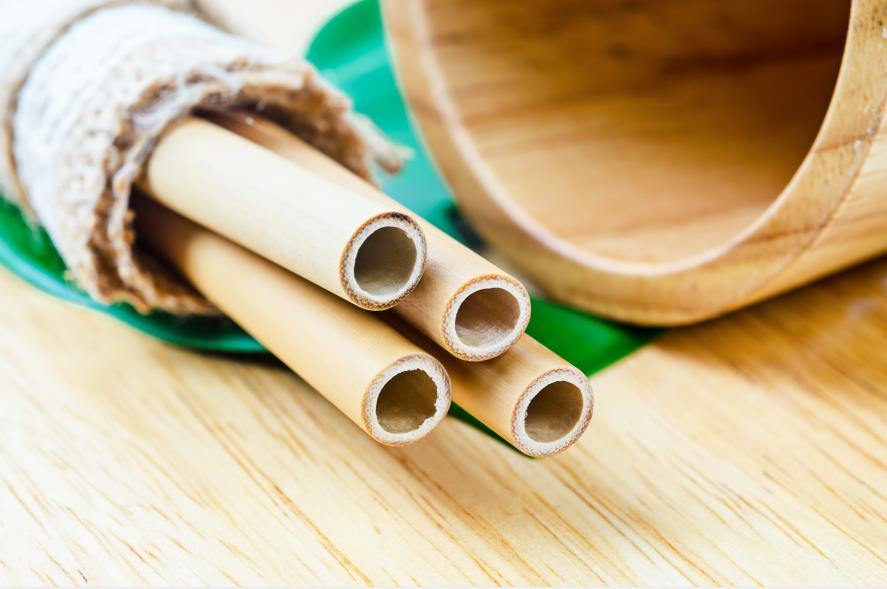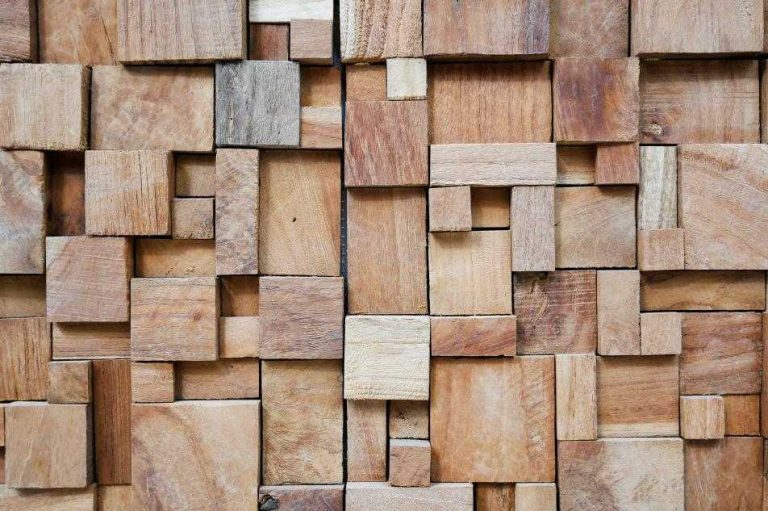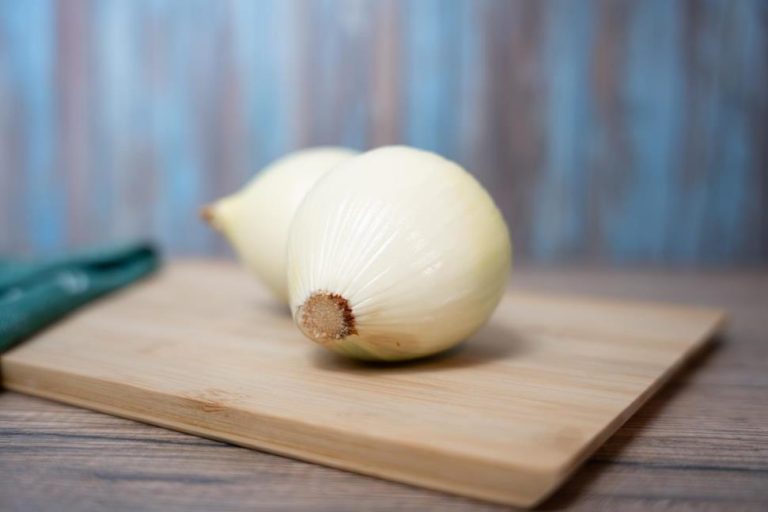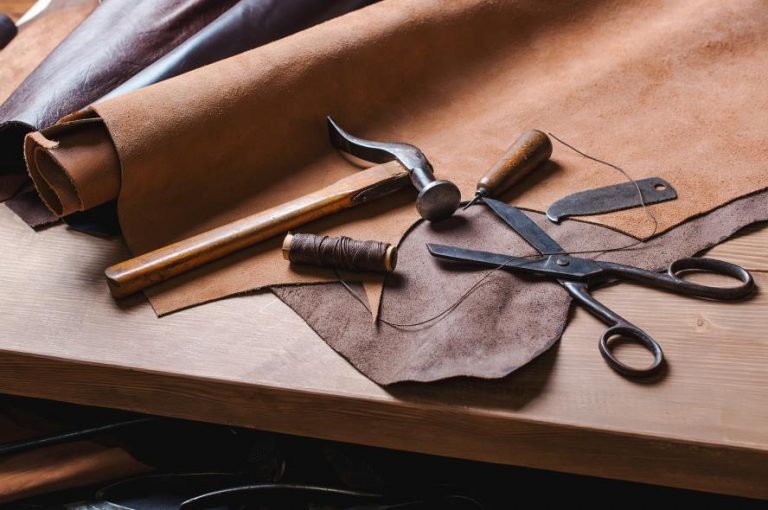Bamboo cutting boards have seen an upsurge in popularity and this might lead you ask if they’re a good product to offer as part of your knife related products range.
This article aims to look closely at bamboo and other cutting board materials so that you can make an educated choice on these products.
We’ll look at the pros and cons of each material and evaluate these as saleable and popular items.
Let’s get started!
Bamboo cutting board pros
Eco – friendly

Bamboo is actually a grass, and it grows VERY quickly. This means that there is a lot of it in certain parts of the world, it’s sustainable and kind to the planet.
Many customers appreciate a product that they can use ‘guilt free’ and sustainability is one of the watchwords of modern consumerism today.
Aesthetically pleasing
Bamboo is a beautiful material that can give a cutting board attractive and striking tones and markings. If your customer base appreciates a cutting board that adds to their kitchen décor, bamboo is great here as the different species offer good variety in look and presentation.
Lightweight
Bamboo is a famously light and thus it’s easy to lift, position and move around. For considerations like storage and cleaning, bamboo offers ease of use.
Hard & tough
Bamboo is very hard, harder than some woods. It will take a lot of abuse and rough usage without noticeable damage, making it a durable choice.
Antimicrobial properties
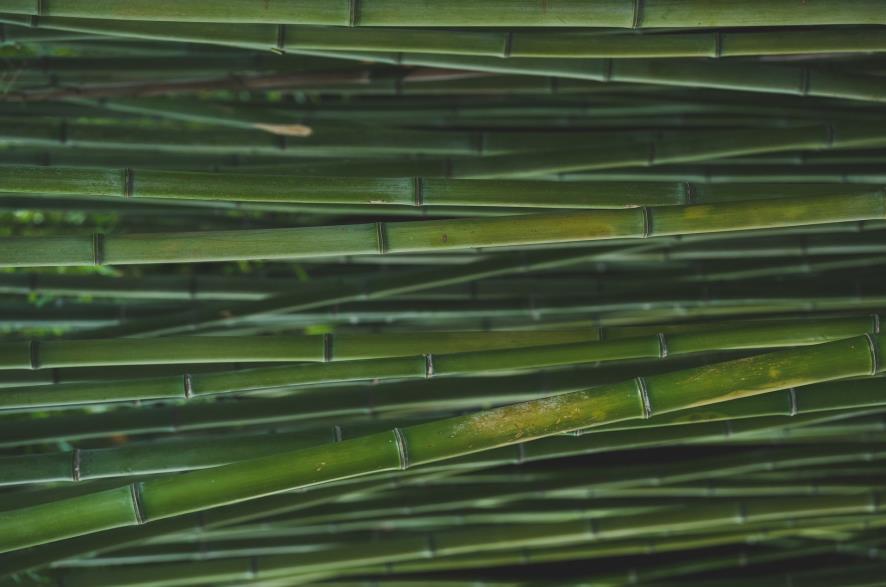
If it’s kept dry between uses, the lignin (natural plastic) in bamboo is antimicrobial and will help to kill germs before they can spread.
Inexpensive
Bamboo replaces itself very quickly and is in abundant supply, this makes it a relatively inexpensive and easy to source choice for cutting boards.
Now let’s look at some of the disadvantages of bamboo cutting boards.
Buy Wholesale Cutting Boards and Start Scaling up with Us Today
Contact us and connect with a sales rep to get a free quote.
Bamboo cutting board Cons
Additives
Some bamboo cutting boards are held together with harmful substances like formaldehyde or glues, which can over time leech into the food being prepared.
Dishwasher unfriendly
Bamboo cutting boards should only be washed by hand and dried very thoroughly after every use. For customers who appreciate the time saving and ease of dishwasher friendly cutting boards, bamboo may not be the right choice.
Prone to moisture damage
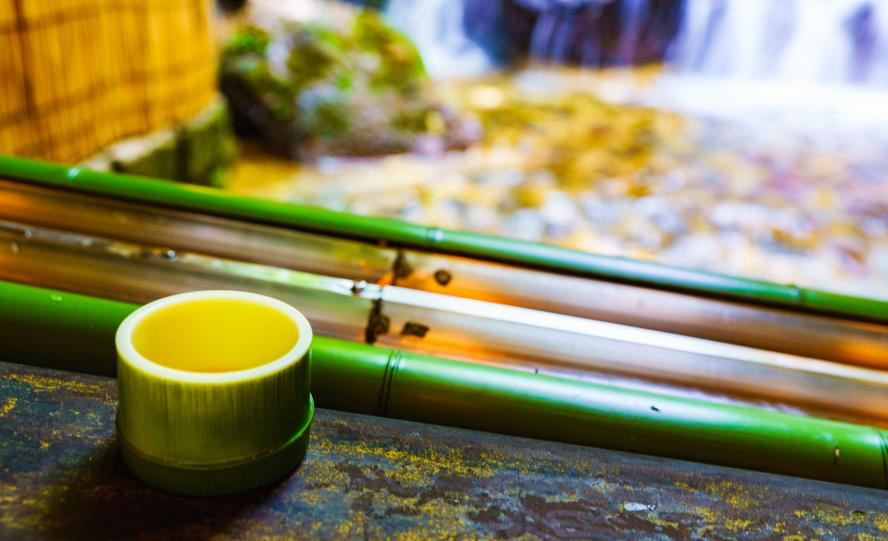
Bamboo cutting boards if left wet or stored in damp conditions can be prone to splitting, warping or fungi like mildew. This not only affects the life term of the cutting board but is also a health concern.
Dulls knife blades
A cutting board made from bamboo is very hard, so it doesn’t get nicked and damaged easily. This is good, but the hardness of bamboo can also dull knives more quickly.
If the customer doesn’t mind sharpening their knives more often this isn’t a problem and unless the bamboo cutting board is used daily most customers may not even notice this propensity, but it should be mentioned.
Maintenance needed
To preserve the quality and good looks of a bamboo cutting board, your customer will have to oil the board at least once a month with food grade mineral oil.
This can be an onerous and messy task. Along with that, disinfecting of the board will be needed regularly as with most plant fiber materials that can trap bacteria.
You need to assess whether the maintenance needs of a bamboo cutting board suit your client’s lifestyle and time/motivation for upkeep.
Fibrosity
As with any plant material, bamboo is fibrous particularly after it gets deeply cut or damaged. This can lead to a fuzzy texture to the board and thready bits or even splinters being transferred into the food.
Cross – contamination
Although bamboo has some antimicrobial properties, it’s still going to absorb meat juices etc. to some extent. For this reason, it’s best if bamboo boards are either used for vegetables and suchlike only (no raw meat juices) OR that the board is disinfected thoroughly after meats are cut on it.
If your customer is a dedicated carnivore and prepares a lot of raw meat, they need to decide whether the extra hygiene steps are worth it, or whether they would still like a bamboo board just for vegetables or display purposes.
Wood vs bamboo cutting boards
Wooden cutting boards are another popular consumer choice today. Let’s compare the two cutting board materials and see how they stack up!
| FEATURE | BAMBOO | WOOD |
| Durability | Moderate | Good |
| Maintenance | High | Moderate |
| Ease of Use | High – lightweight, easy to lift & move around | Moderate – some woods can be heavy and cumbersome |
| Water Resistance | Moderate | Moderate |
| Hygiene | Moderate | Good |
| Dishwasher Friendly | No | No |
| Showing Cut Marks | Will appear quickly | Will develop marks over time |
| Knife Sharpness | Dulls blades quite quickly | Dulls blades over time |
| Price Point | Inexpensive | From inexpensive to costly depending on the wood used |
As you can see, wooden cutting boards perform better than bamboo cutting boards in several areas.
Pro – tip: If your customer wants to buy a bamboo cutting board, advise them to purchase a bamboo cutting board made from end – grain bamboo, NOT edge – grain cut bamboo.
End – grain bamboo boards are better quality and more resilient to wear and splitting.
Buy Wholesale Cutting Boards and Start Scaling up with Us Today
Contact us and connect with a sales rep to get a free quote.
Other cutting board materials
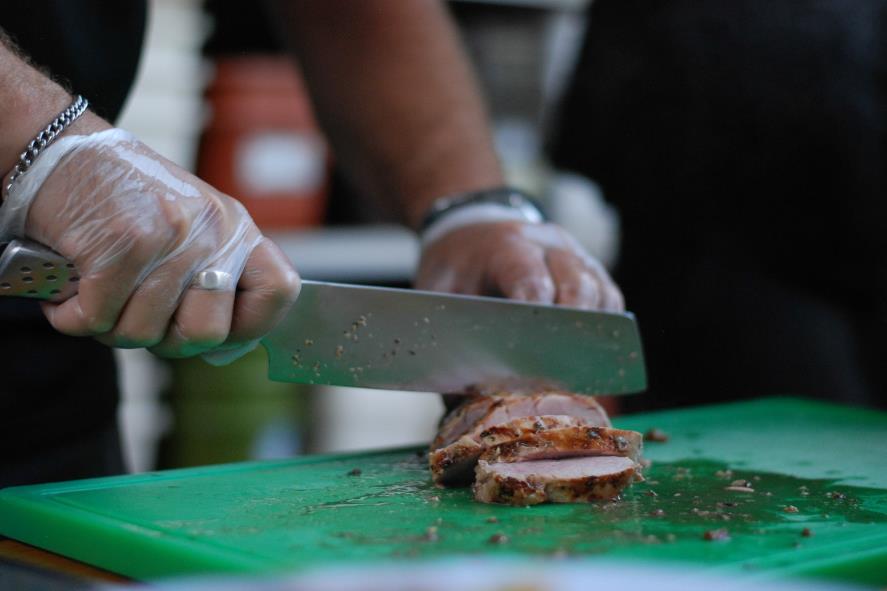
Plastic
Pros
- Inexpensive
- Lightweight and stored easily
- Depending on the type of plastic, plastic cutting boards can be gentle on knife blades
- Non – porous so won’t absorb bacteria or food juices
- Dishwasher safe
Cons
- Will get cuts and scratches over time and the board will need replacing
- Although non – porous, plastic cutting boards can accumulate bacteria in the cut marks, so they aren’t sanitary and require thorough cleaning after use
- Plastic is not anti – bacterial (wood and bamboo are), which is a hygiene concern
- Can wear out a knife blade quicker than a wooden board
- Ecologically damaging and can contain harmful plasticizers like bisphenol
Rubber
Pros
- Durable and hardwearing – won’t show knife marks
- Highly sanitary
- Almost zero maintenance needed
- Gentle on knife blades
Cons
- Expensive
- Depending on the thickness of the rubber, they can be heavy to move around
- Can tend to bow or bend over time if they don’t have a wooden core structure
- Not dishwasher safe, the high temperature can make them warp
What’s the best cutting board material?
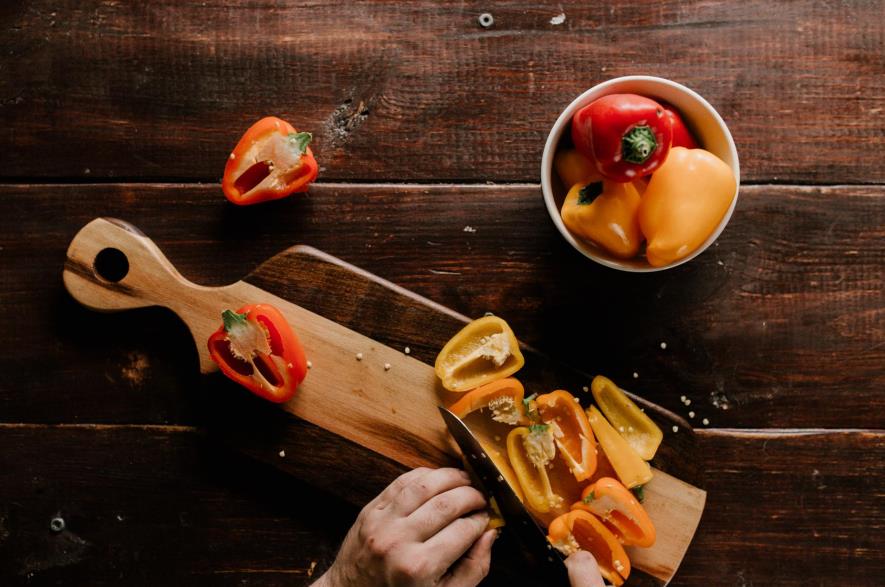
As you can see clearly from our overview, every cutting board material will come with its own benefits and disadvantages.
The best cutting board for YOUR store will be the one that:
- Offers a good profit margin
- Is safe and sanitary for your customers
- Has a maintenance level that avoids after – sales complaints
- Is easily available and suits cultural or local norms
- Fits the type of food that your clientele prepares and eats regularly
- Fits the sharpening routine of the knives in your store
- Is easy to supply, with a large population of consumers: i.e. easily marketable
Each customer will have different likes, needs and expectations as to aesthetic, hygiene and upkeep standards. This is why communication with the buyer is crucial and will help you to find them the best cutting board available for their needs.
Should you offer bamboo cutting boards?
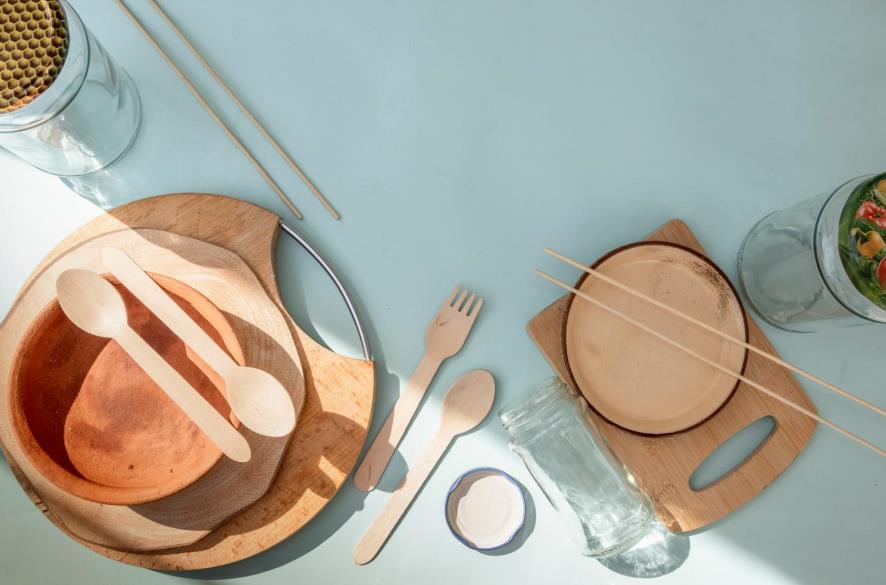
Some customers swear by bamboo and have bamboo boards that have been in their families for years because they’ve been looked after properly.
You would be doing yourself a disservice by not having a product available that a customer may want, so it’s best to offer bamboo cutting boards as well a good range of wooden cutting boards which are always fail safe sellers.
Wooden cutting boards are very durable, look great, offer antibacterial properties and are readily available with a wooden cutting board option to suit any pocket.
In conclusion
This article was a super project for LeeKnives because we recognize the importance of superior kitchen equipment for your customer base.
Do check out the rest of the LeeKnives product range, and remember, a quick quote will be our pleasure!
The best in sales advice is also at your fingertips for any knife retail queries you may have. Thank you so much for joining us!
